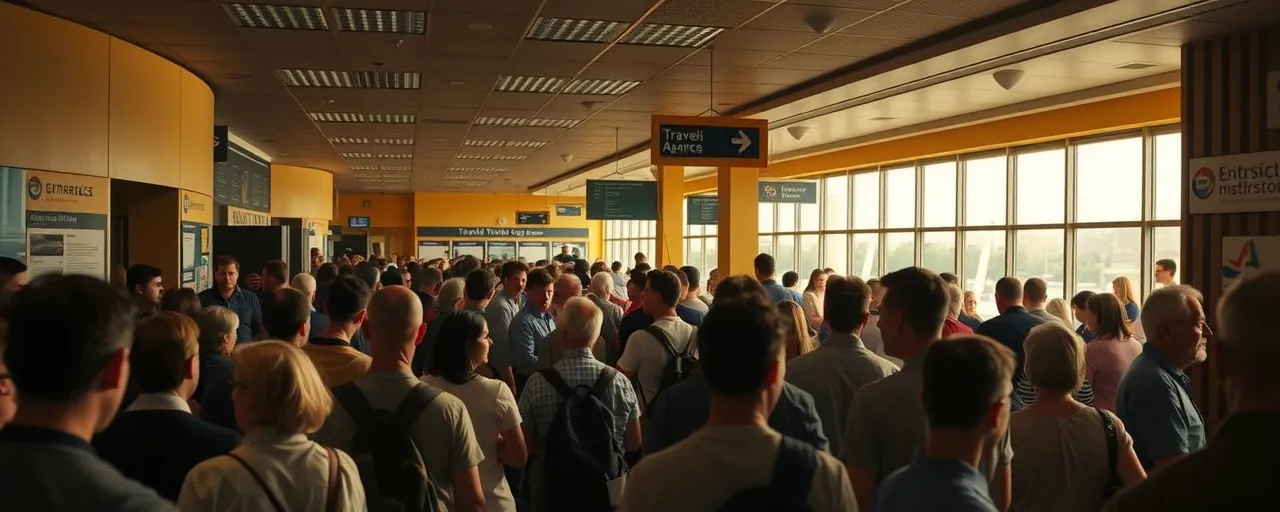A Decisive Blow to Illegal Immigration
The United States is taking a stand. On May 19, 2025, the State Department unveiled a bold policy, imposing visa restrictions on owners, executives, and senior officials of travel agencies that knowingly facilitate illegal immigration. Targeting operations in countries like India, this move delivers a powerful message. America will not tolerate those who profit by undermining our borders and laws.
Human smuggling networks have exploited weak enforcement for years, moving thousands of migrants with little consequence. These operations, often raking in millions, treat borders as open gates. The State Department’s action signals a shift toward accountability, prioritizing the rule of law and the safety of American communities.
Why does this resonate? Illegal immigration burdens local resources, overwhelms border facilities, and erodes public trust. The Biden administration’s relaxed approach left deportations lagging and detention centers strained. With President Trump’s return, the focus is clear: restore order, protect citizens, and hold violators accountable.
Hitting Smugglers Where It Hurts
This policy targets the masterminds behind smuggling, travel agency leaders who orchestrate complex operations. Investigations show agencies in India, Pakistan, and Bangladesh arrange flights, lodging, and transport to Mexico, feeding migrants into smuggling routes at the U.S. border. Some operations shuttle up to 1,000 people per flight, exploiting human vulnerability into profit.
The goal is to dismantle these networks, not to punish migrants. The State Department’s Diplomatic Security Service now has authority to identify and sanction facilitators, including those eligible for the Visa Waiver Program. Blocking their U.S. access disrupts their operations and deters others from joining the trade.
History supports this strategy. In the early 2000s, U.S. agencies in Phoenix were linked to smuggling rings using fake identities and logistics. The State Department has used visa sanctions since the 1990s under the Immigration and Nationality Act to target facilitators. This policy adapts those tools to tackle today’s sophisticated smuggling tactics.
Debunking Misguided Opposition
Some claim these restrictions are overly punitive, arguing they harm legitimate businesses or fail to address migration’s deeper causes. Advocates for lenient policies push for citizenship pathways, reduced detention, or foreign aid to curb migration. Yet this view overlooks a harsh truth. Smuggling networks flourish when enforcement is weak. Easing border controls or offering amnesty fuels the cycle, as seen after the 1986 legalization spurred more unauthorized entries.
Evidence reinforces this. Since January 2025, $45 billion in planned detention expansions and tripled local law enforcement pacts have not raised deportations above Biden-era levels, slowed by court delays and diplomatic barriers. Smugglers exploit commercial flights, moving 500–1,000 migrants per operation. Lenient policies enable this exploitation, not curb it.
Calls for ‘comprehensive reform’ prioritize compassion but neglect accountability. Focusing on health impacts or workforce gaps in mixed-status communities ignores the broader cost, unchecked migration strains taxpayers and undermines legal fairness. National Guard efforts, seizing 7,000 pounds of drugs and rescuing trafficking victims, prove strong enforcement delivers results.
A Global Crisis Needs Bold Action
Illegal immigration transcends borders. In 2024, Spain recorded 63,427 irregular arrivals, with a 16 percent surge in deadly Atlantic Route crossings. NGOs reported nearly 10,000 deaths on that route alone. Smugglers now leverage social media and charter flights, outpacing many governments. The U.S. visa ban policy sets an example, targeting facilitators who operate globally.
International efforts, like the UNODC-IOM framework, have improved data collection and secured 240 U.S. convictions since 2021 through Joint Task Force Alpha. Yet inconsistent laws and funding shortages stall progress. The U.S. cannot wait for global consensus; visa bans offer swift, effective action to disrupt smuggling networks.
Rebuilding Faith in Our Laws
What does this mean for Americans? It’s about restoring confidence in a strained system. Border communities face overcrowded schools, hospitals, and budgets stretched thin. Taxpayers bear the cost of enforcement while smugglers profit. By targeting facilitators, the U.S. protects its citizens and upholds the principle that laws apply to all.
This policy welcomes legal immigrants who respect the process, ensuring fairness for citizens and lawful residents. Rooted in Reagan’s 1986 enforcement push and strengthened by Trump’s border security focus, this vision champions sovereignty and order. Visa restrictions mark progress toward that goal.
The path forward demands more: expand E-Verify, fund border barriers, and redirect resources from jurisdictions that shield violators. The State Department’s policy is a strong start, but sustained commitment will secure America’s future. Why accept less when our communities deserve safety and justice?
